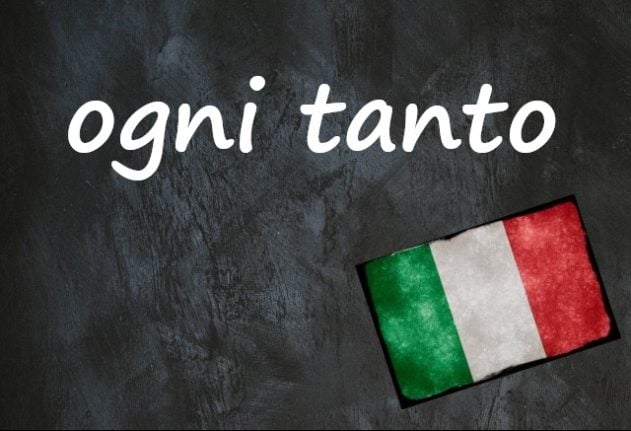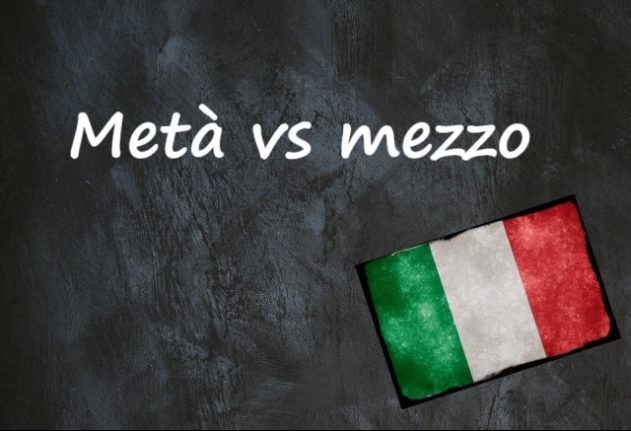Routine can be helpful, even comforting. Often it’s just compulsory.
But today let’s celebrate those things you don’t do every day, nor every other day, nor once a week, nor twice a month, nor often, nor even sometimes.
The things you do ogni tanto: ‘every now and then’. (Hear the pronunciation here.)
This little phrase works quite similarly to its English equivalent: ogni means ‘every’ or ‘each’, while tanto means ‘so much/many’ – so it can also be translated as ‘every so often’.
Ogni tanto le scrivo.
I write to her every so often.
‘So much’? Doesn’t that just mean ‘a lot’? Well yes, that is one important meaning of tanto, but it can also just refer to a unnamed quantity – more like ‘such and such an amount’.
Think about sentences in English like ‘I only have so much patience’ or ‘Every so many passengers get their passports checked’: you’re not saying ‘a lot’, you’re saying ‘X amount of patience’ or ‘X number of passengers’.
Thus, another way of saying ‘every X length of time’ is ‘every so often’. By the same token, di tanto in tanto (literally, ‘from so often to so often’) means ‘from time to time’.
Di tanto in tanto ci vediamo.
We see each other from time to time.
While the two phrases are more or less interchangeable, according to the dictionary doing something di tanto in tanto means doing it slightly less often than ogni tanto, and with longer gaps in between.
So what might you do ogni tanto? Gravel-voiced crooner Gianna Nannini gives us some examples in her song of the same name:
Ogni tanto mi sorprendo
Un po’ t’invento, un po’ ti dai
Ogni tanto perdo il filo, forse non ci sei
Non hai nome, chi ti crede, fiore di ninfea…
Every so often I’m surprised
I invent a little, you give a little
Every so often I lose the thread, maybe you’re not there
You have no name, who believes you, water lily…
Personally, that sort of thing happens to me rather more rarely than ‘every so often’, but here’s hoping you’re lucky enough to experience it ogni tanto!
Do you have a favourite Italian word you’d like us to feature? If so, please email us with your suggestion.



 Please whitelist us to continue reading.
Please whitelist us to continue reading.
Member comments